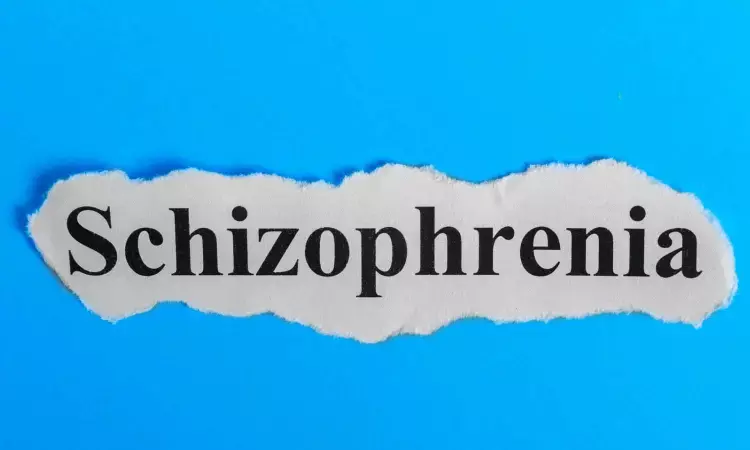- Home
- Medical news & Guidelines
- Anesthesiology
- Cardiology and CTVS
- Critical Care
- Dentistry
- Dermatology
- Diabetes and Endocrinology
- ENT
- Gastroenterology
- Medicine
- Nephrology
- Neurology
- Obstretics-Gynaecology
- Oncology
- Ophthalmology
- Orthopaedics
- Pediatrics-Neonatology
- Psychiatry
- Pulmonology
- Radiology
- Surgery
- Urology
- Laboratory Medicine
- Diet
- Nursing
- Paramedical
- Physiotherapy
- Health news
- Fact Check
- Bone Health Fact Check
- Brain Health Fact Check
- Cancer Related Fact Check
- Child Care Fact Check
- Dental and oral health fact check
- Diabetes and metabolic health fact check
- Diet and Nutrition Fact Check
- Eye and ENT Care Fact Check
- Fitness fact check
- Gut health fact check
- Heart health fact check
- Kidney health fact check
- Medical education fact check
- Men's health fact check
- Respiratory fact check
- Skin and hair care fact check
- Vaccine and Immunization fact check
- Women's health fact check
- AYUSH
- State News
- Andaman and Nicobar Islands
- Andhra Pradesh
- Arunachal Pradesh
- Assam
- Bihar
- Chandigarh
- Chattisgarh
- Dadra and Nagar Haveli
- Daman and Diu
- Delhi
- Goa
- Gujarat
- Haryana
- Himachal Pradesh
- Jammu & Kashmir
- Jharkhand
- Karnataka
- Kerala
- Ladakh
- Lakshadweep
- Madhya Pradesh
- Maharashtra
- Manipur
- Meghalaya
- Mizoram
- Nagaland
- Odisha
- Puducherry
- Punjab
- Rajasthan
- Sikkim
- Tamil Nadu
- Telangana
- Tripura
- Uttar Pradesh
- Uttrakhand
- West Bengal
- Medical Education
- Industry
Antipsychotic medications reduce vehicle crashes in drivers with schizophrenia: Study

Taking antipsychotic medications as prescribed lowers the risk of a car crash for drivers with schizophrenia, according to new research published in CMAJ (Canadian Medical Association Journal) .
Schizophrenia can cause hallucinations and disorganized behaviour that affect the ability to safely operate a motor vehicle. Most people with schizophrenia are prescribed antipsychotic medications that improve many of these symptoms. Researchers hypothesized that these medications may also reduce the risk of a motor vehicle crash — but only if patients continue to take the medication as prescribed.
Dr. John A. Staples and colleagues at the University of British Columbia in Vancouver, BC, used 20 years of population-based health and driving data to examine 1130 motor vehicle crashes involving drivers with a diagnosis of schizophrenia and prior treatment with antipsychotics. They found that taking antipsychotic medication as prescribed significantly reduced the odds of a crash.
“We found that perfect adherence to antipsychotic medication (relative to complete nonadherence) was associated with a 50% reduction in the odds of a crash,” notes Dr. Staples. “We believe our results suggest that antipsychotic medications reduce crash risk among individuals with schizophrenia.”
The findings have important implications.
“Our results provide one more reason for doctors and family members to encourage people with schizophrenia to take their antipsychotics as prescribed. We think our results also suggest that health systems should put more resources into programs to support antipsychotic adherence among people with schizophrenia,” says Dr. Staples.
He adds, “If a driver with schizophrenia isn’t taking their medications as prescribed, should their driver’s licence be temporarily suspended? This approach deserves some consideration. But we also know that people with schizophrenia are often marginalized, with limited opportunities for employment and social engagement. Taking away their driver’s licence might make them more isolated. We think more research is needed so that policy-makers can understand these risks before enacting a policy that might be coercive or harmful.”
Reference:
John A. Staples, Daniel Daly-Grafstein, Mayesha Khan, Lulu X. Pei, Shannon Erdelyi, Stefanie N. Rezansoff, Herbert Chan, William G. Honer and Jeffrey R. Brubacher, Antipsychotic treatment adherence and motor vehicle crash among drivers with schizophrenia: a case–crossover study, Canadian Medical Association Journal, DOI: https://doi.org/10.1503/cmaj.250020
Dr Kamal Kant Kohli-MBBS, DTCD- a chest specialist with more than 30 years of practice and a flair for writing clinical articles, Dr Kamal Kant Kohli joined Medical Dialogues as a Chief Editor of Medical News. Besides writing articles, as an editor, he proofreads and verifies all the medical content published on Medical Dialogues including those coming from journals, studies,medical conferences,guidelines etc. Email: drkohli@medicaldialogues.in. Contact no. 011-43720751


